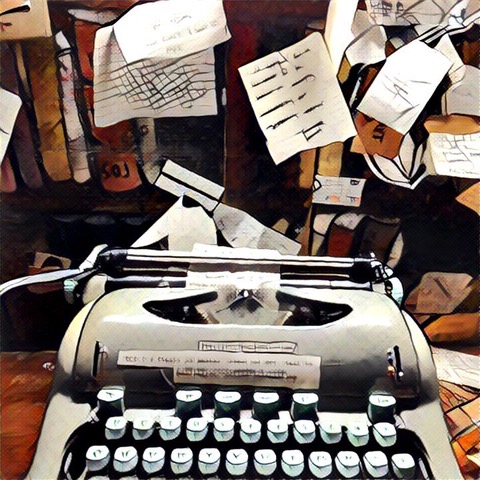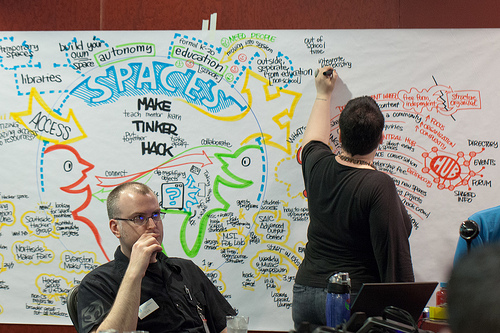How to Avoid Writing a Boring Story
This is the time of year when many writers (or aspiring ones) commit to the fun madness that is NaNoWriMo. National Novel Writing Month is a huge ubiquitous event, with thousands of people spending the month of November writing a novel. It can surely be a fun exercise in creativity, stick-to-itiveness, and high-goal-setting.
But regardless if you are joining the mad crowd in this endeavor or not, there are some basic things every writer should consider before committing any amount of time to a project.
Don’t Bother Writing a Boring Story
It should go without saying that if your own story idea bores you, maybe you shouldn’t waste weeks, months, or years of your life writing that book. Don’t just write a book to write one, unless you just want to challenge yourself to accomplish such a goal, which is what some people strive to do during Nanowrimo. I’ve spoken to many people who wrote a novel just to see if they could do it, and for many, that end was satisfying in itself.
But for a serious career novelist (or poet or short-story writer) who wants to tell a compelling story, and hopefully more than just one in his lifetime, it’s a good idea for him to come up with a concept that excites him, for whatever reasons.
That doesn’t necessarily mean it should be a novel. Many ideas or concepts are perfect for an article or short story but don’t have “legs” to really fill a novel. And that’s an entirely different topic to discuss in the future.
Some Ways to Find Your Way Home
But let’s say you do have a great concept for a novel, and you feel passionate about the story. You’ve done all the hard work of plotting; developing rich, complex characters with stories of their own; and setting up the core conflict and plot and subplot goals and arcs for your story. You know the “take-home” message or feeling you want the reader to get at the end of the book. And maybe you’ve put in some good writing so far.
At times the story seems to be hovering over some lost horizon. You could be wandering a bit lost, and, as the cliche goes, you can’t see the forest for the trees. A novel is like a huge forest with so many trees (elements) that our vision can get muddled and our eyes tired from trying to “see the big picture” all the time.
I know for me, the only way I can really keep the pacing up and stay clear and on track is to reread everything I’ve written every so often as I’m working on the book. I mean many times. By the time I’m at page two hundred, I’ve reread those first two hundred pages dozens of times straight through. Not to edit but to get a feel for the flow and see if it’s telling the powerful story I mean it to tell.
Sometimes our stories get those legs and start to run away (or amok) and we have to chase after them. And that’s hard to do when the characters are egging us on and daring us.
3 Ways to Spark Creativity
So, instead of wandering lost in the woods, trying to figure out where you lost that passion (did it fall out of your pocket along with the bread crumbs?), there are a few things you can do to help you find your way back to the passionate heart of your story.
- Listen to evocative music. Choose some music to listen to before you sit down to write your scene or as you begin to brainstorm your ideas before actually writing. Some people (like me) really can’t listen to any music or noise while writing; they need quiet. Others find music very helpful to get the creative juices flowing. One author who writes thrillers likes to listen to movie soundtracks—from tense, action-packed films. Other writers enjoy classical music or jazz. It might help to choose music that “fits” the genre you’re writing. I am sure more than one writer while crafting a tragic romantic moment played Celine Dion’s rendition of “My Heart Will Go On” from the movie Titanic.
- Try some unbridled freewriting. Writing freely without your infernal editor censoring you or criticizing is very helpful. I’ve read some books on Gestalt-type writing that shows this kind of freewriting really unleashes emotion and inspiration. Freewrite in the first-person voice of one of your characters and let her ramble about her life, dreams, and fears. Freewrite about an object that needs description in a scene. If you wrote a passage about a woman carrying an umbrella and it sounds lifeless and boring to you, spend some time freewriting a page about this woman. Make up a story and history for her, tell the worst and best moments of her life, give some crazy reason for her being out in the storm. Just let your imagination go. We rarely let ourselves loose like this when confined to the parameters of the story we are trying to write, so just write on a blank sheet of paper or a blank document knowing you can just toss it when you’re done. You may be quite surprised to see what happens when you let yourself go wild.
- Look at images. If you need to write a scene set in a dark urban alley, or a scene along the cliffs of a rugged coastline, try searching for images to gaze at. Google images and compfight.com will show you hundreds, if not thousands, of images. And if you find some intriguing ones, think about doing that freewriting exercise, drawing one of your characters into the setting you are studying, and letting the character talk to you. If you let your characters emote and show what they are passionate about, that can get you passionate about telling their story. For me, what ignites my passion for my story is when I get to the heart of my characters.












Good post, some practical tips. I have shared this widely.
Thanks!
Thank you for writing this post. These are great tips that will be useful as I am writing my first novel.